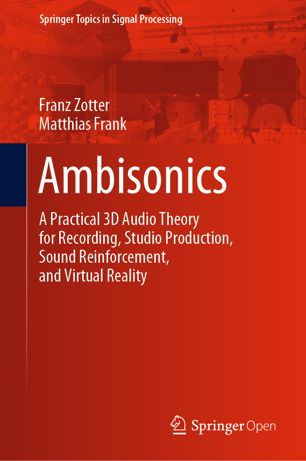

Most ebook files are in PDF format, so you can easily read them using various software such as Foxit Reader or directly on the Google Chrome browser.
Some ebook files are released by publishers in other formats such as .awz, .mobi, .epub, .fb2, etc. You may need to install specific software to read these formats on mobile/PC, such as Calibre.
Please read the tutorial at this link: https://ebookbell.com/faq
We offer FREE conversion to the popular formats you request; however, this may take some time. Therefore, right after payment, please email us, and we will try to provide the service as quickly as possible.
For some exceptional file formats or broken links (if any), please refrain from opening any disputes. Instead, email us first, and we will try to assist within a maximum of 6 hours.
EbookBell Team

0.0
0 reviewsThis open access book provides a concise explanation of the fundamentals and background of the surround sound recording and playback technology Ambisonics. It equips readers with the psychoacoustical, signal processing, acoustical, and mathematical knowledge needed to understand the inner workings of modern processing utilities, special equipment for recording, manipulation, and reproduction in the higher-order Ambisonic format. The book comes with various practical examples based on free software tools and open scientific data for reproducible research.
The book’s introductory section offers a perspective on Ambisonics spanning from the origins of coincident recordings in the 1930s to the Ambisonic concepts of the 1970s, as well as classical ways of applying Ambisonics in first-order coincident sound scene recording and reproduction that have been practiced since the 1980s. As, from time to time, the underlying mathematics become quite involved, but should be comprehensive without sacrificing readability, the book includes an extensive mathematical appendix. The book offers readers a deeper understanding of Ambisonic technologies, and will especially benefit scientists, audio-system and audio-recording engineers.In the advanced sections of the book, fundamentals and modern techniques as higher-order Ambisonic decoding, 3D audio effects, and higher-order recording are explained. Those techniques are shown to be suitable to supply audience areas ranging from studio-sized to hundreds of listeners, or headphone-based playback, regardless whether it is live, interactive, or studio-produced 3D audio material.